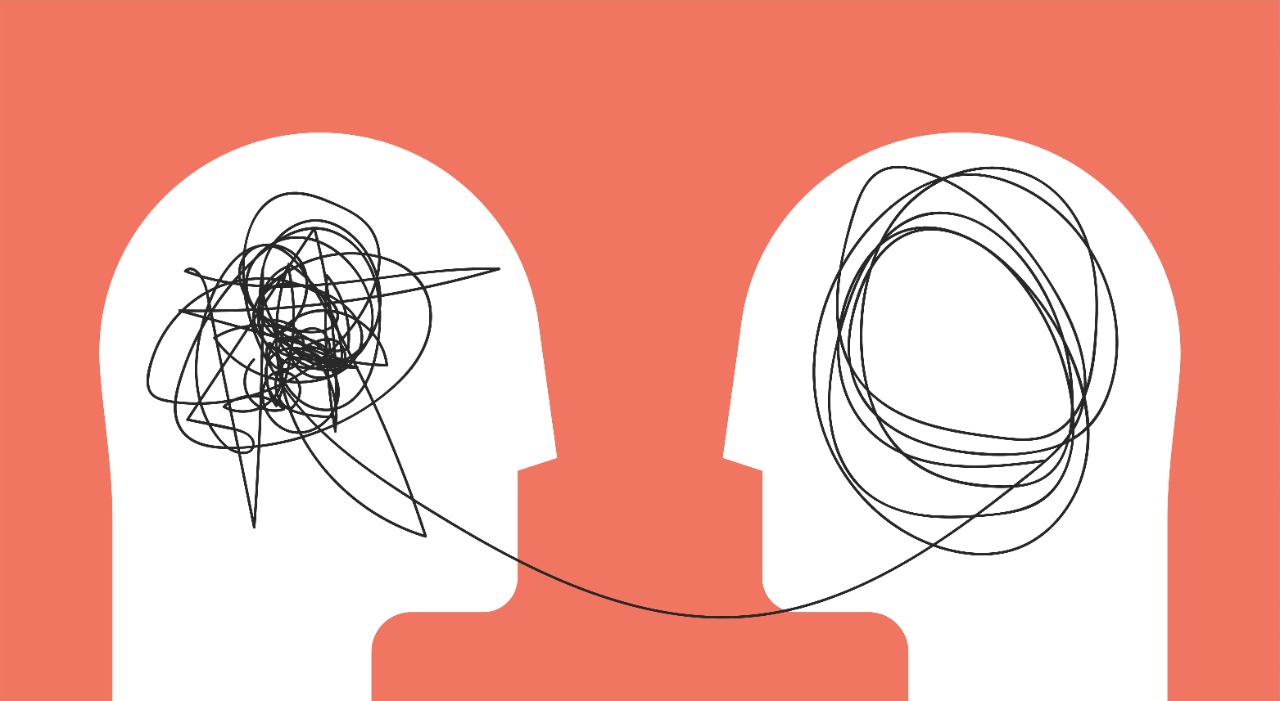What is Mental Health?
Mental health refers to cognitive, behavioral, and emotional well-being. It is a state of well-being in which an individual thinks, feels, and behave. Mental health is important because it's a vital part of your life and impacts your thoughts, behaviors and emotions. Being healthy emotionally and mentally can promote productivity and effectiveness in an individual. It plays an important part in the health of your relationships, and allows you to adapt to changes in your life and cope with adversity. The burden of mental disorders continues to grow with significant impacts on health and major social, human rights and economic consequences in the world. Mental health illness is a global public health problem with approx. 200 million people affected every year in India itself.
Types of Mental Health Problems
Types of mental health problems & issues: There are many different mental health disorders, with different presentations. Mental health disorders are generally characterized by a combination of abnormal thoughts, perceptions, emotions, behaviour and relationships with others. Depression is the most common mental health disorder and one of the main causes of disability worldwide. Other common mental health problems are- bipolar disorder, schizophrenia and other psychoses, dementia, and developmental disorders including autism.
What are the Symptoms & Signs of a Mental Health Problem?

Signs of a mental health problem: Some early signs for mental health illness are- confused thinking, persistent feeling of sadness or irritability, loss of interest, extreme mood changes of highs and lows, social withdrawal, excessive fears or worries, dramatic changes in eating or sleeping habits, strange thoughts and strong feelings of anger.
There are multiple types of causes for Mental Health but mainly these causes have commonly.
What Causes Mental Health Issues?
- Imbalance in the brain's signalling chemicals
- Early childhood trauma
- Substance abuse
- Distressing life situations such as job loss, the death of a loved one, financial troubles or a divorce
- Underlying medical conditions like underactive thyroid gland, cancer, heart disease or prolonged pain
- Combination of genetic, biological, environmental, and psychological factors
Mental Health Support

Mental health support: Your treatment depends on the type of mental health illness you have, its severity and what works best for you. In many cases, a combination of treatments works best.
- Medication: Although psychiatric medications don't cure mental health illness, they can often significantly improve symptoms. It can also help make other treatments, such as psychotherapy, more effective. Some of the most commonly used medications for mental health treatment are- antidepressants, anti-anxiety, mood-stabilizers and antipsychotic medications.
- Psychotherapy: Psychotherapy, also known as talk therapy, is the therapeutic treatment of mental health illness provided by a trained mental health professional. Psychotherapy explores thoughts, feelings, and behaviors, and seeks to improve an individual’s well-being. Psychotherapy paired with medication is the most effective way to promote mental health recovery. Cognitive Behavioral Therapy is one example of psychotherapy.
Other treatment options for mental health illness are- hospitalization, peer support group, art therapy, brain stimulation therapy and psychosocial treatment.
If You are Living with Mental Health Issues
Living with mental health issues: Mental health issues can make you miserable and can cause problems in your daily life, such as at school or work or in relationships. If you are having stress, anxiety or overwhelming feelings that upsets you, you should seek help from your family member/ friend/ mental health professional. Long term mental health issues without treatment can be fatal.
What Should I Be Looking for in a Counselor or Psychotherapist?
Finding the right counselor for mental health issue will probably take some time and work, but it’s worth the effort. The connection you have with your counselor is essential. You need someone who you can trust, someone you feel comfortable talking to about difficult subjects and intimate secrets, someone who will be a partner in your recovery. One of the main reasons for connecting with a counselor, rather than simply talking to a friend, is experience. Look for a mental health counselor who is experienced in treating the problems that you have. Often, counselors have special areas of focus, such as depression or eating disorders. Experienced mental health counselors have seen the problems you’re facing again and again, which broadens their view and gives them more insight. You should look for a counselor who is a good listener. Make sure the mental health counselor holds a relevant license. If the connection with your counselor doesn’t feel right, if you don’t trust the person or feel like they truly care, it is better go with another choice.
Most Common Mental Health Disorders

There are multiple types of mental health disorders but most common types of mental disorders are as follows:
- Anxiety disorders
- Mood disorders
- Schizophrenia disorders
What is Anxiety Disorder?
Anxiety Disorders: Anxiety is a normal emotion and your reaction to stress. Anxiety disorder is a mental health disorder characterized by feelings of worry, anxiety or fear that are strong enough to interfere with one's daily activities. There are several types of anxiety disorders: Generalized anxiety disorder, panic disorder, social anxiety disorder, specific phobias, separation anxiety, selective mutism and medication-induced anxiety disorder.
What is Mood Disorder?
Mood Disorders: Mood disorders are characterized by a serious change in mood that cause disruption to life activities. Though there are many different subtypes, three major states of mood disorders are: depressive, manic, and bipolar. Major depressive disorder is characterized by overall depressed mood. Elevated moods are characterized by mania or hypomania. The cycling between both depressed and manic moods is characteristic of bipolar mood disorders.
What is Schizophrenia Disorder?
Schizophrenia disorders: Schizophrenia is a challenging brain disorder that often makes it difficult to distinguish between what is real and unreal, to think clearly, manage emotions, relate to others, and function normally. It affects the way a person behaves, thinks, and sees the world. The most common form is paranoid schizophrenia in which people have an altered perception of reality. They may see or hear things that don’t exist, speak in confusing ways, believe that others are trying to harm them, or feel like they’re being constantly watched.
What is Generalized Anxiety Disorder (GAD):
Generalized anxiety disorder (GAD): It is a common anxiety disorder that involves constant and chronic worrying, nervousness, and tension. There is a general feeling of dread or unease that affects your whole life. This anxiety is less intense than a panic attack, but much longer lasting, making normal life difficult and relaxation impossible. Generalized anxiety disorder is mentally and physically exhausting as it drains your energy, interferes with sleep, and wears your body out.
Panic disorders: Panic disorder is a mental health disorder characterized by repeated panic attacks, combined with major changes in behavior or persistent anxiety over having further attacks. The signs and symptoms of a panic attack develop abruptly and usually reach their peak within 10 minutes. They rarely last more than an hour, with most ending within 20 to 30 minutes. Panic attacks can happen anywhere and at any time. If you have panic disorder, the recurrent panic attacks take an emotional toll. The memory of the intense fear and terror that you felt during the attacks can negatively impact your self-confidence and cause serious disruption to your everyday life.
Phobias: A phobia is an intense fear of something that, in reality, poses little or no actual danger. Common phobias and fears include closed-in places, heights, highway driving, flying insects, snakes, and needles. However, you can develop phobias of virtually anything. While most phobias develop in childhood, they can also develop in later life. The distress associated with the phobia and/or the need to avoid the object or situation can significantly interfere with the person's ability to function.
What is Obsessive-Compulsive Disorder (OCD)
Obsessive-compulsive disorder (OCD): It is mental health disorder that causes repeated unwanted thoughts or sensations (obsessions) or the urge to do something over and over again (compulsions). Some people can have both obsessions and compulsions. With OCD, these thoughts and behaviors cause tremendous distress, take up a lot of time, and interfere with your daily life and relationships. OCD comes in many forms, but most cases fall into at least one of four general categories:
- Checking, such as locks, gas stove, or light switches, or thinking you have a serious medical condition
- Contamination- a fear of things that might be dirty or a compulsion to clean. Mental contamination involves feeling like you’ve been treated like dirt.
- Symmetry and ordering- the need to have things lined up in a certain way
- Ruminations and intrusive thoughts- an obsession with a line of thought. Some of these thoughts might be violent or disturbing.
What is Post-Traumatic Stress Disorder (PTSD)
Post-traumatic stress disorder (PTSD): It is a serious mental health condition that can develop after a person has experienced or witnessed a traumatic or terrifying event in which there was serious physical harm or threat. PTSD is a lasting consequence of traumatic ordeals that cause intense fear, helplessness, or horror. Some examples of things that can bring on PTSD are- sexual or physical assault, the unexpected death of a loved one, an accident, or natural disaster. While one is most likely to develop symptoms of PTSD in the hours or days following a traumatic event, it can sometimes take weeks, months, or even years before they appear. Sometimes symptoms appear seemingly out of the blue. At other times, they are triggered by something that reminds you of the original traumatic event, such as a noise, an image, certain words, or a smell.


Dr Tanvi is a public health professional. She has women related health issues in India as her major area of interest. She is currently engaged in an awareness programme about incidence of cancer among women in general and cervical cancer in particular.